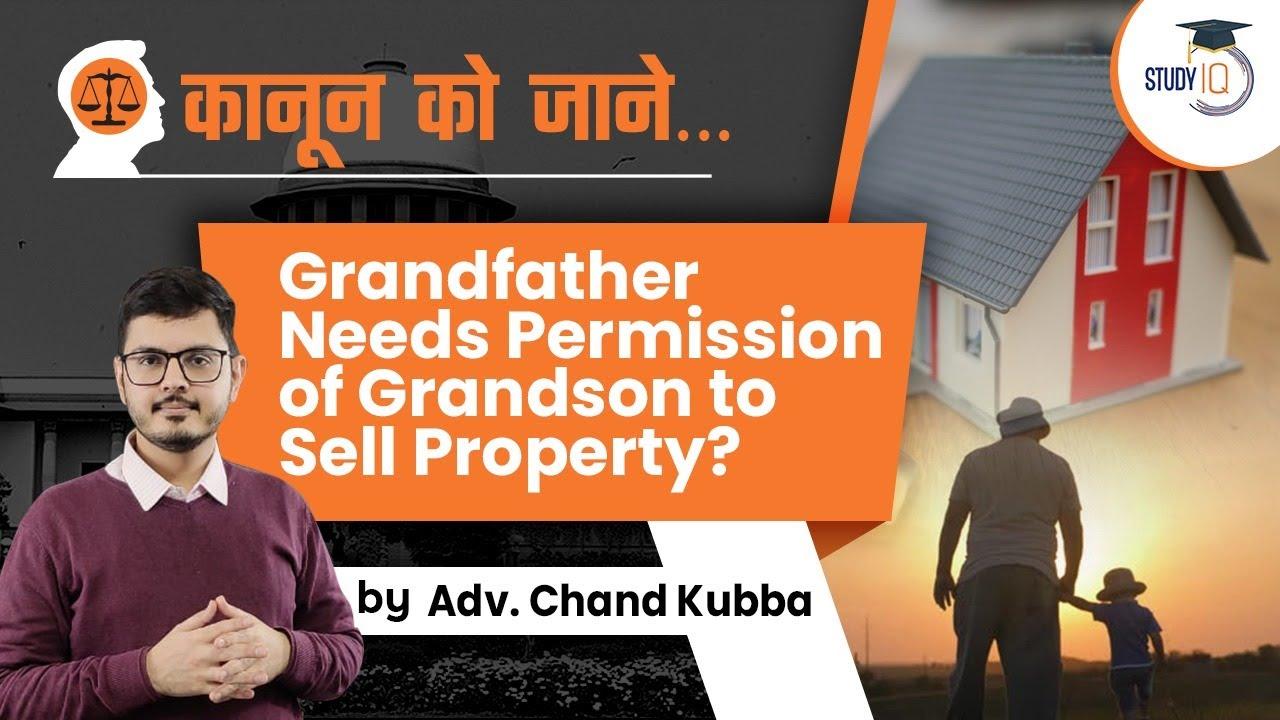Table of Contents
Grandfather Can’t Sell Property Without Consent of Grandson?

Property
- Ancestral Property
- Self-Acquired Property
Ancestral Property
- Ancestral Property is one which is inherited up to four generations of male lineage.
- Such a Property is treated as a family Property and belongs to HUF (Hindu undivided family).
- The only condition is that the property should have remained undivided till the fourth generation.
- How is SelDevolved f Acquired Property?
- Self Acquired Property is Devolved through Will by the owner of the Property
- It Can be Devolved to any one
Karta

- As per definition by Mulla- Manager – Property belonging to a joint family is ordinarily managed by the father or other senior member for the time being of the family: The Manager of a joint family is called Karta. He is the custodian of the income and assets of the HUF
- He is entrusted not only with the management of land/assets of the family but also is entrusted to do the general welfare of the family.
Who Can Be A Karta?
- Ordinarily the senior most male member is the Karta of the joint family
- So long as he is alive, may be aged, infirm, or ailing, he will continue to be Karta
- However, in cases of insanity or any other disqualifications, the next senior male member becomes the Karta.
- According to Dharmashastras, a female member can act as Karta in two situations-
- in absence of male members, or
- in case where male members if present are minors.
Coparcener- सहदायिक-
- As per the Hindu Succession Act, 1956, any individual born in a Hindu Undivided Family (HUF) becomes a coparcener by birth.
- Both sons and daughters are coparceners in the family and share equal rights and liabilities over the property.
- The ownership of an ancestral property starts right from birth.

Can a Karta Sell Ancestral Property without consent of Coparceners?
- While as head of a Hindu undivided family (HUF), Karta has the power to manage the ancestral Property, an ancestral property cannot be sold by the sole decision of one or part owners, since four generations have their claim over such a property.
- The consent of each stakeholder will be required, to sell an undivided ancestral property.
Exceptions to the Rule –
- Kehar Singh (D) through legal representatives vs Nachittar Kaur – Punjab and Haryana High Court underlined Circumstances under which a father can sell a family property-
- the Karta can make a gift of a portion of the family property for pious purposes
- for payment an antecedent debt, provided that the debt was not incurred for any immoral or illegal purposes
- in case of legal necessity –The payment of taxes and debts, with respect to the same property, as well as expenses incurred for the maintenance of the coparcener and other members of the family

Son-in-law’s right in property of his father-in-law
- Since a son-in-law is not considered a part of the family of his father-in-law, he has no right in a property owned by the latter.
- Even if he has given money for the construction work of the said property, He will Have No Right in the same.






















 WhatsApp
WhatsApp